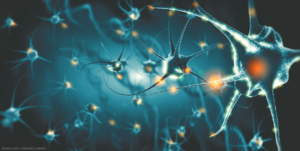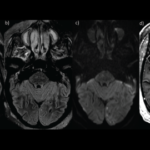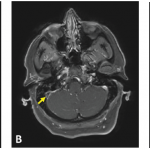 Neuro-rheumatology is a fast-growing field. Better testing and imaging have increased recognition of once-infrequent diagnoses, such as neuro-sarcoidosis and amyloid beta-related angiitis. Concurrently, the rapid expansion of immunotherapy options to treat cancer and their untoward neurological side effects have increased the frequency of referrals to both neurologists and rheumatologists. Identifying and treating neurologic manifestations of systemic diseases can be challenging and requires close collaboration between neurologists and rheumatologists.
Neuro-rheumatology is a fast-growing field. Better testing and imaging have increased recognition of once-infrequent diagnoses, such as neuro-sarcoidosis and amyloid beta-related angiitis. Concurrently, the rapid expansion of immunotherapy options to treat cancer and their untoward neurological side effects have increased the frequency of referrals to both neurologists and rheumatologists. Identifying and treating neurologic manifestations of systemic diseases can be challenging and requires close collaboration between neurologists and rheumatologists.
In Boston, the Brigham and Women’s Hospital neuro-rheumatology clinic was established a few years ago to address this need, and we have gained insight into the challenges associated with caring for these complex patients.
We wish to describe our experience and propose our top five innovations for improved patient care.
1. Encourage interested physicians—neurologists and rheumatologists—to gain expertise in the area of neurorheumatology.
We have an expanding group of clinicians whose training has provided them with enhanced understanding of how systemic and nonsystemic autoimmune diseases intersect with the nervous system. Neurologic manifestations of systemic diseases may occur years before the onset of systemic symptoms.1 Systemic disease can present anywhere in the neurologic system; neurologists with neuro-rheumatology training generally approach patients by localizing their disorder and then narrowing the differential diagnoses using their knowledge of how certain systemic disorders affect the nervous system.2
Because the central nervous system is so complex, it is critical clinicians be qualified to diagnose and manage autoimmune neurologic disorders using all available tools, including magnetic resonance and nuclear medicine imaging, electromyography and appropriate laboratory investigations. By combining the expertise of the neurologist with the rheumatologist, we are better able to manage patients with complicated neurological and systemic features. The shared clinic allows us to break the silos that often isolate one medical specialty from another and eliminate clinical inefficiencies. Many academic neurology programs have instituted fellowship specialty training to enhance the skills of clinicians who wish to pursue their interest in this field.
2. Create a team: the role of the inpatient consult service.
Many patients with neuro-rheumatologic disease present during a hospitalization. These illnesses can range from severe to life threatening. Therefore, we have created a dedicated neuro-inflammatory consult team to assess these patients. This service provides an outstanding opportunity for interested clinicians who wish to gain additional expertise in this field.
Starting our relationship with the patient at the time of their acute illness allows for better short- and long-term management because our team can be involved in developing the appropriate treatment plan, which invariably will require the use of immune-modifying drugs of various complexity.



